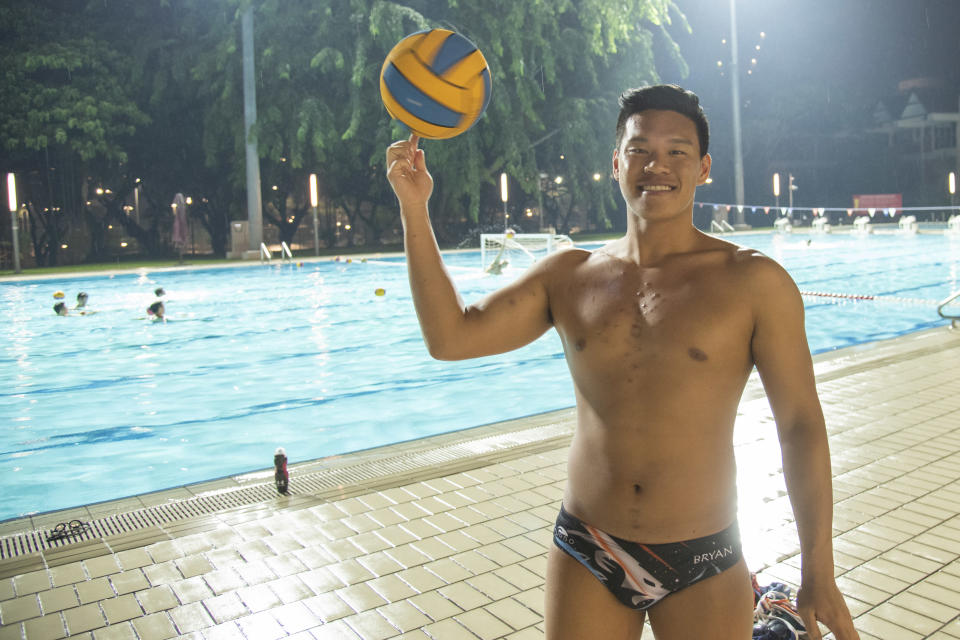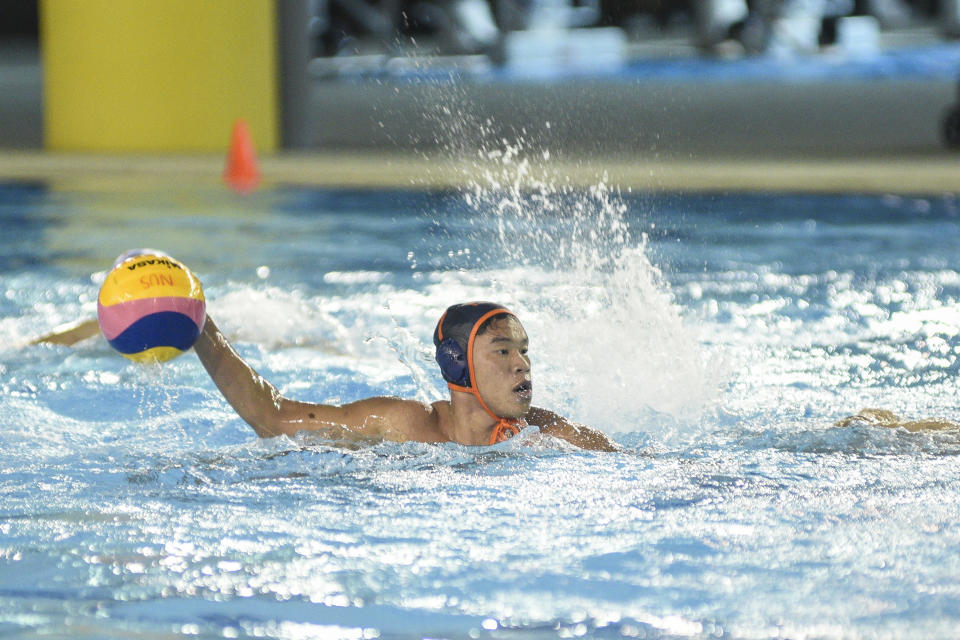Why I Play series: Water polo player Bryan Ong
“Why I Play” is a fortnightly series every Thursday showcasing the stories of people who enjoy playing sports. Want to see your sport featured? Let us know via Facebook or Twitter.
At the age of 14, national water polo player Bryan Ong almost turned his back on the sport as he was coming back from an injury. At that time, he was juggling both swimming and water polo as his co-curricular activities. It was a tough decision, but Ong eventually decided to continue on playing water polo.
Since then, the medicine student has represented his various schools since secondary level all the way until university, where he is now the team captain. The 23-year-old was also part of the Singapore national team that won the gold medal at the 2015 SEA Games on home soil.

Q: How did you get involved in this sport?
A: I first got involved in water polo in 2008, when I entered secondary school. At that time, I was in swimming and it was kind of boring for me. I didn’t really enjoy the sport. I found out about water polo through my dad and it seemed fun watching it. I thought, what better way to integrate my swimming than into another sport? So I decided to take a leap of faith and joined the sport in Secondary One and since then, I’ve never looked back.
Which muscle groups are most involved in this sport? Which part of your body ache the most after a water polo match and why?
I would say that this is probably the most physically demanding sport. It is actually rated the toughest of all sports according to some research because this sport requires your entire body to work. And after an intense training or a match, my whole body will ache.
Tell me the biggest misconceptions people have of this sport.
One of the biggest misconceptions of the sport is that people think that it is a clean sport.
Over the years, I’ve been asked if water polo is a dirty sport. There are definitely things that happen underneath that the spectators do not catch and see. Violence is never a part of the game, but aggression is – and that aggression is a crucial weapon that determines if we get the advantage over our defenders.

In playing this sport, what has been your most memorable experience?
I would say my most memorable experience to date would have to be winning the 2015 SEA Games gold. Having the opportunity to represent Singapore in my first-ever senior competition, in front of our home crowd, is definitely and always will be a once-in-a-lifetime experience.
Having the crowd cheer you on in every attack and defence, singing the national anthem united in one voice and most importantly, defending our title in front of our friends and family is something I will never forget.
Your most heartbreaking moment?
My most heartbreaking would have to be during my time with Raffles Institution, when we lost to our rivals Hwa Chong Institution in the 2013 Inter-School Water Polo Competition. We needed a win to secure a spot in the final, and we were doing well until the last quarter, when we became lacklustre in both attack and defence.
Not only was it a heartbreaking loss, but it was also a defining one as well and the experience definitely changed the way I approached the game.
Share an inspiring story you have of a tournament or an experience with teammates that made you love this sport even more.
My experience in the 2011 Betawi Cup in Jakarta, back when I was in Secondary Four, was definitely memorable. We were the only Under-16 team in the competition, playing against a bunch of older teams. The final match was against the Malaysian team, which comprised of many players that would have been in the SEA Games.
I think the best part about this experience was that the match was so intense and we were so focused on playing our game and playing for one another – covering for one another’s mistakes and celebrating each successful defensive play before attacking as a team. The camaraderie and the experience made me love this sport even more and encouraged me to improve myself.

Was there a time you felt like walking away from the sport? What made you stay?
There was once, when I was in Secondary Two, about to go to Secondary Three. At that point in time, I was injured with a clavicle fracture after playing a rugby game and I was thinking whether I should go back to water polo.
After all, I joined only in Secondary One and I didn’t think that I was that developed in the sport yet. When I was injured, I couldn’t train with the water polo team for a while and I thought, “I lost my skills in polo already, so why go back?”
But eventually, I decided to stay because, having gone through the C Division competition with my teammates already and winning with them, it felt good to win. I felt that I owe it to my teammates to come back.
What was the worst injury you’ve ever experienced?
It was definitely my torn anterior cruciate ligament (ACL) injury, which came from a stupid mistake. Being in university, you want to be adventurous, you want to try new things, you know? That injury happened during my first year in university during the inter-faculty games when I was playing handball.
Handball is like water polo on land, but little did I know during my first training – not even during the competition itself – some guy knocked into my knee, while my foot was planted to the ground. The next thing I knew, I heard a pop. I thought a knee sprain at first but it turned out into a complete ACL tear and a meniscus tear.
I missed out on getting back to the national team to play and I missed out on playing for my school as well.
What life lessons has this sport taught you?
Throughout my experience playing water polo, it has taught me values such as discipline, responsibility, teamwork and empathy.
How can people get involved if they’re interested in this sport?
Nowadays, there are many avenues – both for guys and girls – to try out the sport, unlike in the past when it was only offered in a few schools. Now, there are clubs and schools that allow people to try out water polo. There are many ways to go about developing and improving as a beginner.
Can you tell me why you love this sport?
There will come a day when I won’t be able to experience the adrenaline rush, the numbness in my fingers, the long bus rides and the team talks. The beauty of the sport is such that it challenges me in a way where I can never feel satisfied, and this is why I play.



